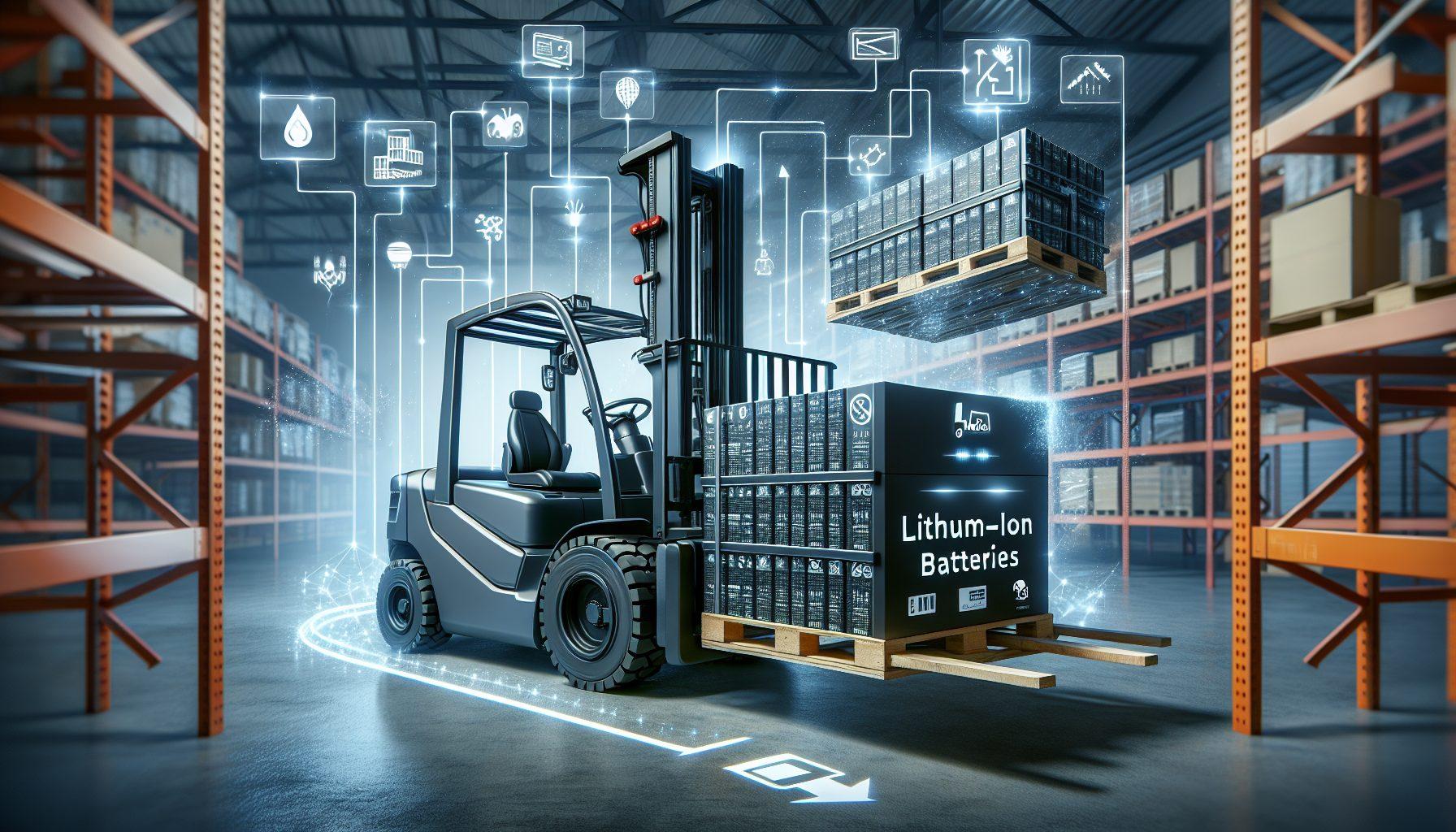Forklifts play a crucial role in warehouse operations, carrying heavy loads and ensuring smooth movement of goods. To power these machines, the choice of battery is of utmost importance. Lithium-ion batteries have gained significant popularity in recent years and have become the go-to choice for many warehouse owners and operators. In this article, we will explore the benefits of using lithium-ion batteries for forklifts.
1. Longer Battery Life
One of the key advantages of lithium-ion batteries is their remarkably longer lifespan compared to traditional lead-acid batteries. While lead-acid batteries typically last for 3-5 years, lithium-ion batteries can last up to 10 years with proper care and maintenance. This extended lifespan leads to significant cost savings over time, as businesses won’t need to replace batteries as frequently.
2. Faster Charging
Lithium-ion batteries also offer faster charging capabilities compared to lead-acid batteries. They can be charged to full capacity in a matter of hours, whereas lead-acid batteries can take up to 8-10 hours to charge fully. This means that businesses can reduce downtime and keep their forklifts operational for longer periods, leading to increased productivity and efficiency within the warehouse.
3. Reduced Maintenance
When it comes to maintenance, lithium-ion batteries require minimal upkeep compared to traditional batteries. Unlike lead-acid batteries, lithium-ion batteries do not require regular watering or equalizing charges. This eliminates the need for regular maintenance tasks, allowing businesses to allocate their resources more efficiently. Additionally, the absence of acid in lithium-ion batteries reduces the risk of spills and the associated safety hazards.
4. Enhanced Energy Efficiency
Lithium-ion batteries are known for their high energy density, which translates to improved energy efficiency. They have a higher charge-discharge efficiency compared to lead-acid batteries, meaning more power is converted into useful work. This increased efficiency leads to longer operating times for forklifts on a single charge, reducing the need for frequent battery changes or recharges. Ultimately, this improves overall productivity and reduces operational costs.
5. Environmental Friendliness
As businesses increasingly focus on sustainability, lithium-ion batteries offer a more environmentally friendly alternative. Unlike lead-acid batteries, which contain hazardous materials such as lead and sulfuric acid, lithium-ion batteries are non-toxic and do not pose significant environmental risks. Furthermore, lithium-ion batteries are fully recyclable, making them a greener choice for businesses looking to reduce their carbon footprint.
6. Safety
Lithium-ion batteries are designed with safety in mind. They are built to withstand impact and vibration, reducing the risk of damage or leakage. Additionally, lithium-ion batteries do not emit harmful gases during operation, making them safer for both workers and the environment. With their advanced safety features, businesses can ensure a secure and protected working environment for their employees.
Investing in lithium-ion batteries for forklifts can provide numerous benefits for warehouse operations. From longer battery life and faster charging to reduced maintenance and improved energy efficiency, these batteries offer a compelling solution for optimizing warehouse productivity. To take advantage of the benefits of lithium-ion batteries, consider partnering with a reputable provider of warehouse optimization solutions like HCO Innovations. They offer a range of forklift fleet power management solutions that incorporate lithium-ion batteries to enhance safety, productivity, efficiency, and cost-effectiveness within warehouse operations. Click here to learn more about their offerings.

